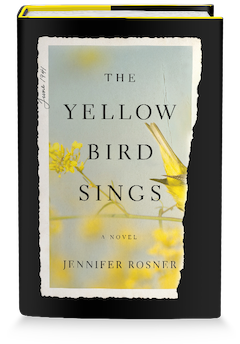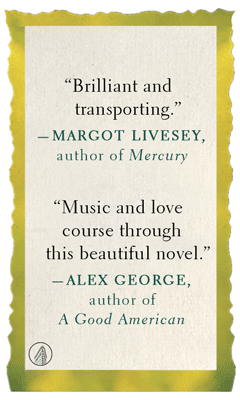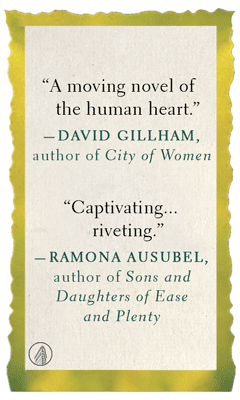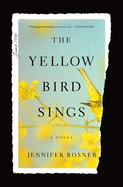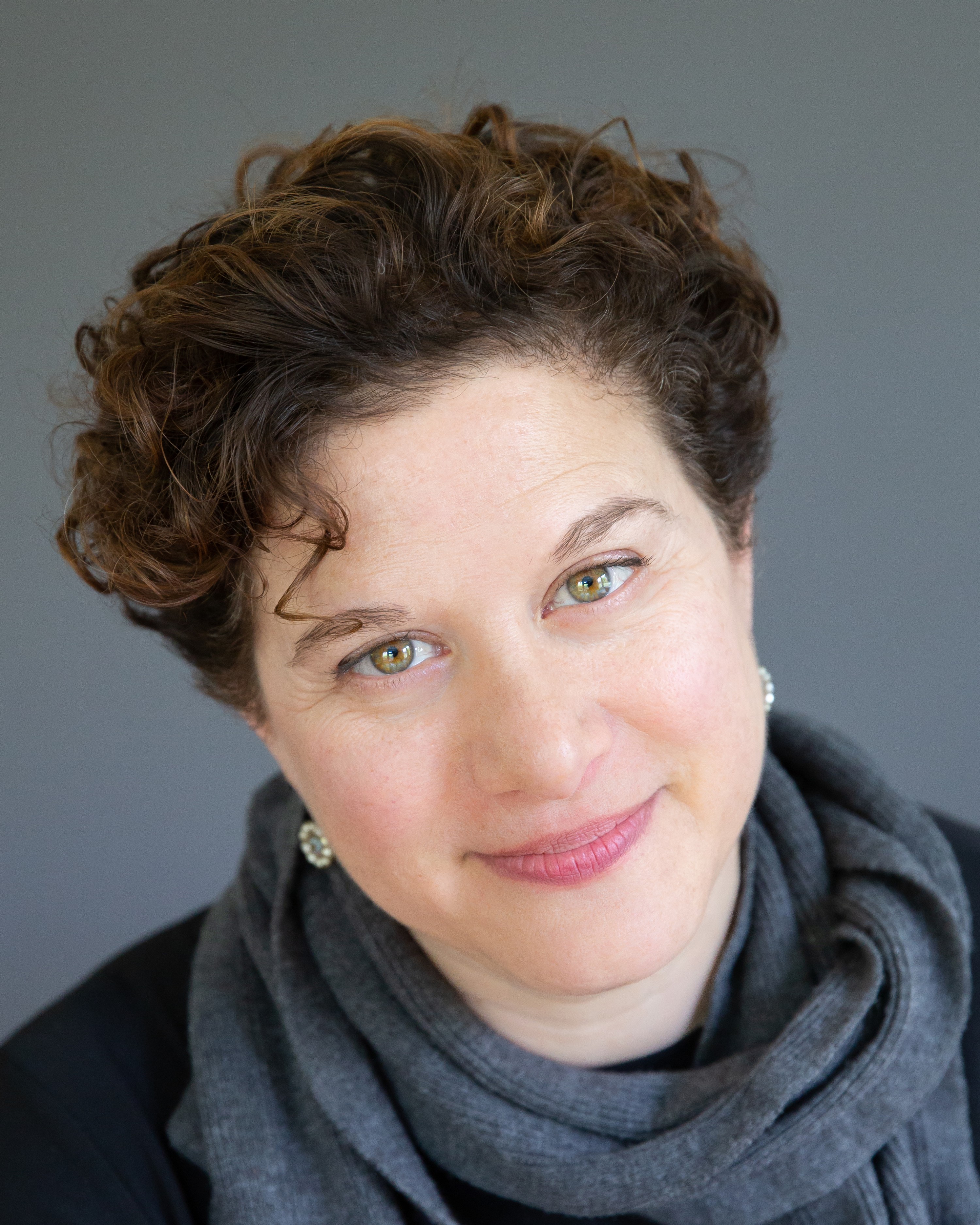The Yellow Bird Sings
by Jennifer Rosner
The profoundly moving novel The Yellow Bird Sings by Jennifer Rosner offers a beautiful and deeply resonant depiction of the enduring, eternal connection between parent and child. Through unforgettable characters and a gripping, multi-layered plot, Rosner shows how both silence and music can become symbols of hope and survival.
In 1941, Poland is in the throes of war. Róza and Shira live in the small village of Gracja. After Róza's husband, Natan, doesn't return home from work one evening, and her parents are taken by the Germans, mother and daughter flee to a nearby barn owned by Henryk, a frequent customer from the bakery where Róza works. Reluctantly, he and his wife allow the two to remain in the barn loft, hidden from the soldiers carousing nearby. They must stay silent, buried under mounds of hay, with only food scraps for sustenance.
At five years old, Shira--whose name means song--is talented and passionate about music. Before going into hiding, she and her family enjoyed many evenings of dancing, singing and playing the cello and violin. Now silenced by necessity, it is nearly impossible for Shira to remain quiet and still during the days and nights with nothing to do. Róza whispers enchanting, fairytale-like stories to Shira, who imagines a special companion: a yellow bird that sings Shira's original soaring, precocious compositions, the same songs that Shira fights to keep buried deep inside.
"The girl is forbidden from making a sound, so the yellow bird sings. He sings whatever the girl composes in her head: high pitched trills of piccolo; low-throated growls of contrabassoon. The bird chirps all the musical parts save percussion, because the barn rabbits obligingly thump their back feet like bass drums, like snares. The lines for violin and cello are the most elaborately composed. Rich and liquid-smooth, except when fear turns the notes gruff and choppy."
Even if she must endure what once was unthinkable, Róza is determined to protect her daughter. Both know that their safety is dependent on staying silent in more ways than one, especially when Henryk begins visiting the barn nearly every night, raping Róza while a frightened and confused Shira feigns sleep.
Rosner (If a Tree Falls: A Family's Quest to Hear and Be Heard) has a keen ability to elicit heart-wrenching emotion through her simple yet luminescent writing. With vivid, descriptive prose that provides insight into both Shira's and her mother's desperation, the author gives readers a sense of physically being in the barn with the two. Despite the World War II setting, Róza's terror, guilt and shame--palpable on the page--become universally recognizable to anyone who has ever felt responsible for a child.
"Before the worst began happening in Gracja, Róza downplayed the denigrations: the yellow stars, the marks on the doors of Jewish businesses, including her mother and Aunt Syl's bakery. Róza only ever wanted Shira to feel pride in herself. Perhaps this is why she doesn't tell her outright the reason they have to hide, why they are hunted."
When Henryk's barn becomes unsafe and Róza is forced to make a desperate sacrifice, the imaginary bird and its gift of music become a symbol of an everlasting, unbreakable bond between mother and child. "Only in this music, wistful and defiant, can she find something of her own without giving herself away. Find her family, her home. Shuttered windows. Yellow stars. Notes like these to bridge the shared night."
Rosner's use of evocative images and symbolism is perhaps the most integral and powerful part of The Yellow Bird Sings: the thin shafts of sunlight streaming through cracks in the barn's walls contrast with the dark nights and bitterly cold winters; the joy of the music cherished by Róza and Shira counterpoints the terror; the "shared night" stands in for the Jewish collective experience of encountering evil and darkness.
Most striking is her use of the color yellow. It represents, simultaneously, a sign of hatred (the yellow Stars of David that the Nazis required the Jewish people to wear); beauty (the feathers of the imaginary yellow bird that gives comfort while keeping her music, and Shira herself, alive); and the stars that light Róza and Shira's way throughout the longest and darkest of nights.
Stories and music can be powerful forces in people's lives. In The Yellow Bird Sings, Rosner honors that truth through this exquisite tale, one that demonstrates how words and song have a timeless power to keep loved ones connected and their voices alive through generations. --Melissa Firman



